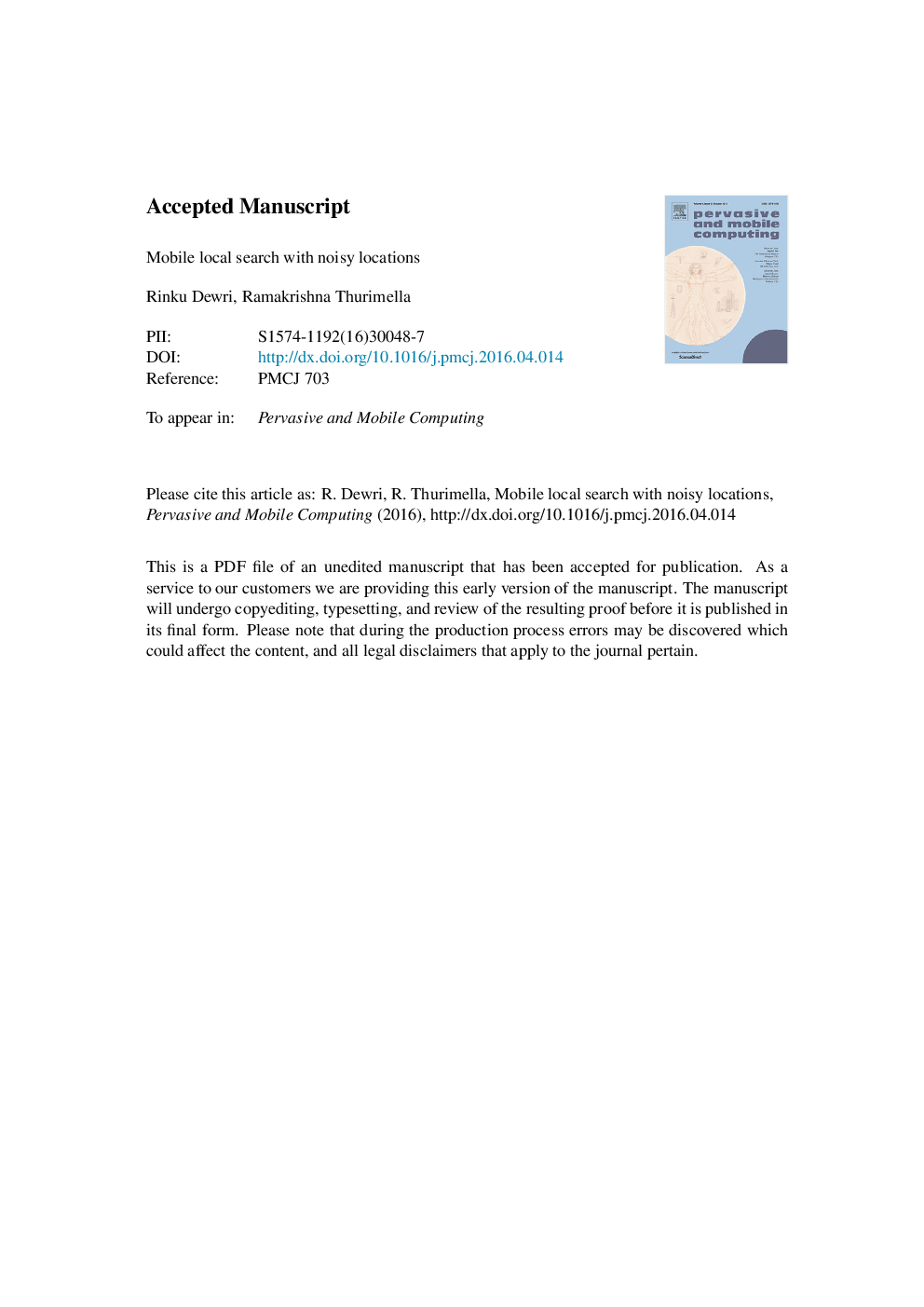| Article ID | Journal | Published Year | Pages | File Type |
|---|---|---|---|---|
| 4957506 | Pervasive and Mobile Computing | 2016 | 24 Pages |
Abstract
The deep penetration of mobile devices have led to the emergence of multiple mobile applications that seek to harness the positioning capabilities embedded in such devices. One of the most functional of these applications is local search. Local search is similar to a regular web search, yet is more powerful in a mobile setting since results are ranked both by prominence and locality. Undoubtedly popular, the current design of local search applications fails to cater equally to a privacy-aware user who desires finer controls in her location disclosure. Towards this end, we propose the design for a private local search (PriLS) application that enables a user to first learn the geographic variation in local search results and then use it to determine a noisy location that has little or no affect on the search results. Parametric studies and real-world evaluations show that PriLS can help identify geographic locations that would produce similar search results (compared to when the user's location is used) with no noticeable delays in user experience. They also reveal that large areas typically exist where there is no change in the result of a local search query, and can be exploited to provide spatial privacy guarantees to a user.
Related Topics
Physical Sciences and Engineering
Computer Science
Computer Networks and Communications
Authors
Rinku Dewri, Ramakrishna Thurimella,
